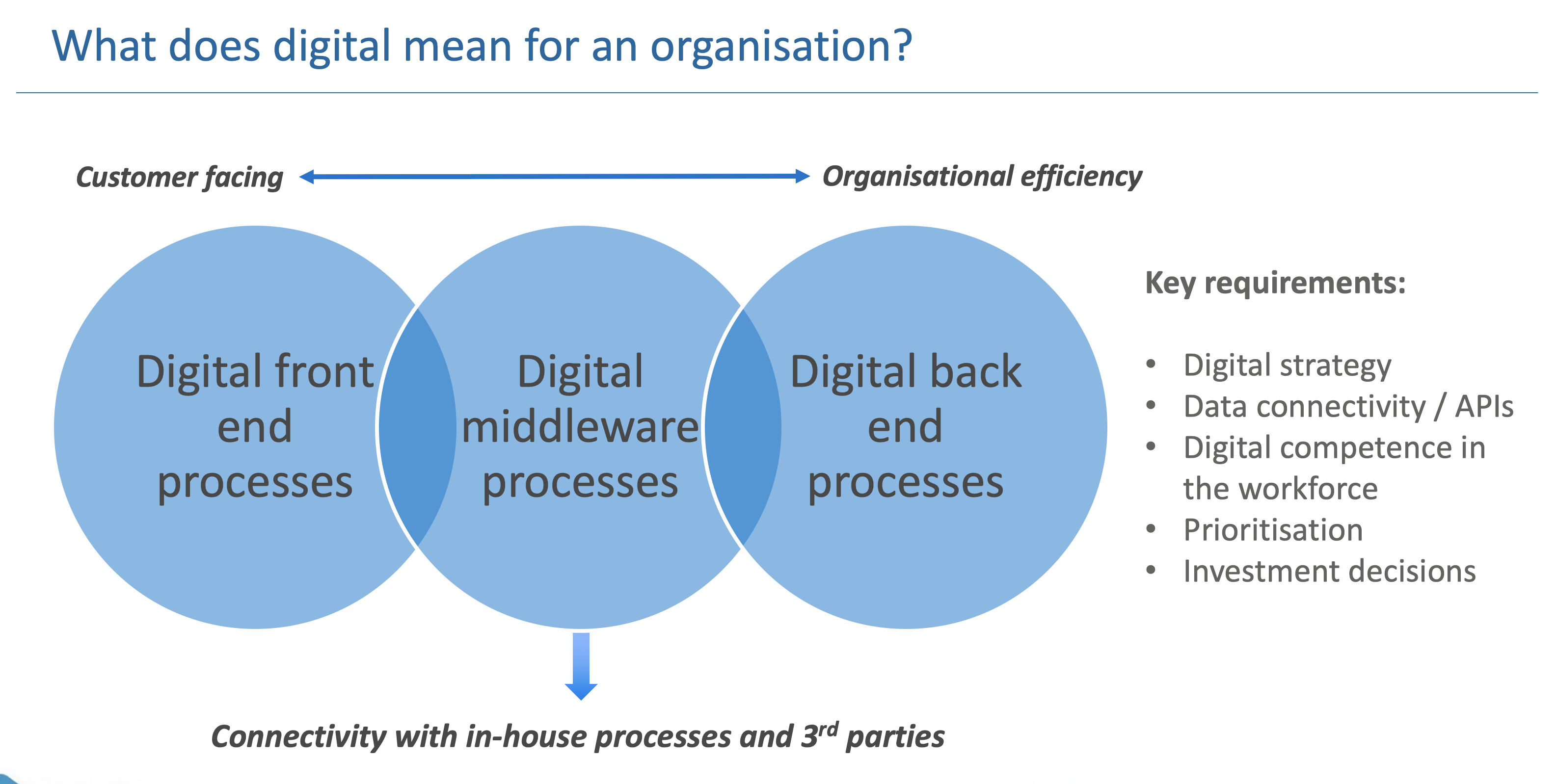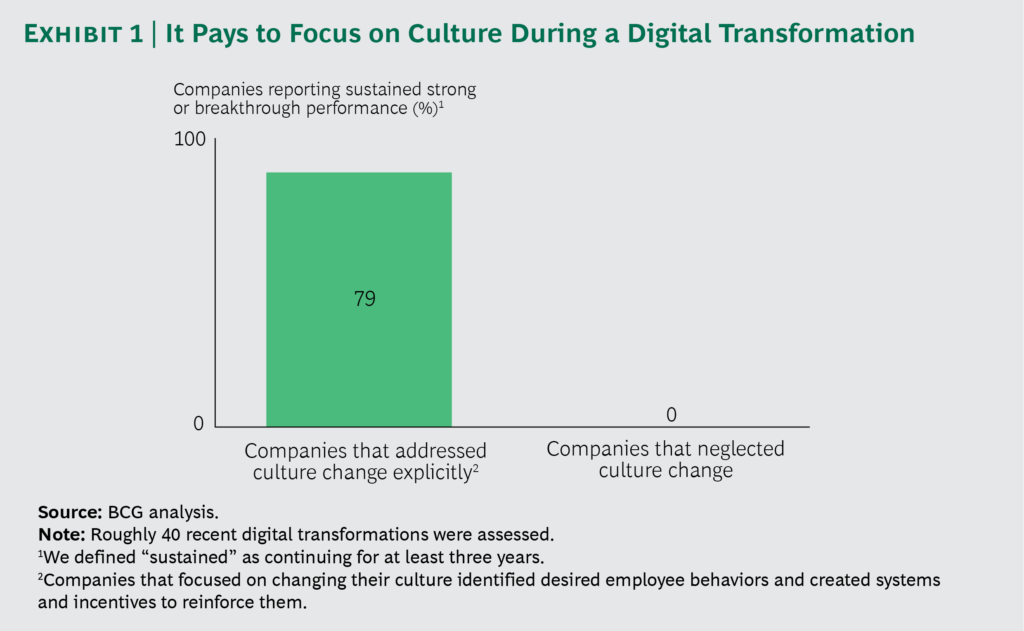 I recently delivered a keynote presentation on innovation at a conference hosted by the Building Societies Association, which led me to reflect on the strategic thinking that underpins an established organisation’s move towards becoming ‘digital’.
I recently delivered a keynote presentation on innovation at a conference hosted by the Building Societies Association, which led me to reflect on the strategic thinking that underpins an established organisation’s move towards becoming ‘digital’.
The conference was titled ‘The Digital Mutual’, and as the opening speaker, one of my roles was to set the scene for the day.
My preparation led me to ask three key questions in the context of an established business addressing its digital journey:
1. What does it mean to become a digital organisation?
2. What is the role of strategy in the journey to becoming digital?
3. What is the key to a successful digital transformation strategy?
In this blog we will look at each of these questions in turn, highlighting that a digital transformation requires instilling and developing a culture that supports the change while also enabling the company to pursue its overarching strategy.
1. What does it mean to become a digital organisation?
The consumer and business world is increasingly digitally enabled and connected – and at an accelerating rate – but often the word ‘digital’ is only associated with front end consumer-facing marketing and technology such as smartphones and mobile applications.
The reality is that digital goes right to the heart of an organisation, encapsulating the digitisation of front-end engagement, middleware (primarily via the fast growing API economy) and core back-end processes; this is how customer benefits such as an enhanced user experience can be delivered as well as achieving core improvements to organisational efficiency:

Being a digital organisation means not only having digital products, services, and customer interactions but also powering core operations with technology.
2. What is the role of strategy in the journey to becoming digital?
Critical for all organisations who need to adapt is to be clear on the role digital can play in the future of the business. In our experience at Whitecap, this means addressing two fundamental points:
– Ensuring clarity of the business strategy
– Understanding what digital transformation looks like for the organisation
Our work in this field typically leads us to encourage organisations to focus their attention on a number of key areas, with the most prominent being::
Digital strategy – an articulation of how digital developments and activities can support the corporate strategy
Data connectivity / APIs – ensuring the organisation can seamlessly connect to digital innovators and other third parties
Digital competence in the workforce – ensuring the organisation is appropriately skilled and resourced
Prioritisation – having a clear view of the importance and priority of strategic initiatives, projects and activities
Investment decisions – identifying and committing to investment, which due to the speed of change in digital may not always be supported by a clear business case from the outset
Clearly, there is much consider and this blog is only covering these topics at very high level, but the third and final question we pose is a critical one…
3. What is the key to a successful digital transformation strategy?
As with so many things to do with successful strategy implementation, much comes down to the role of people and culture, a topic we have recently devoted an entire blog to.
A recent BCG study of 40 digital transformations found the proportion of companies reporting breakthrough or strong financial performance was five times greater (90%) among those that focused on culture than it was among those that neglected culture (17%).

BCG claims that by ignoring the creation of a digital culture, an organisation risks transformation failure, stating ‘it’s not a digital transformation without a digital culture’, and identifies five core elements of a digital culture:
It promotes an external, rather than an internal, orientation – encouraging employees to look externally and engage with customers and partners to create new solutions.
It prizes delegation over control – allowing employees to follow guiding principles so that their judgment can be trusted.
It encourages boldness over caution – permitting people to take risks, fail fast, and learn, and discouraging them from maintaining the status quo out of habit or caution.
It emphasises more action and less planning – recognising the need for speed and promoting continuous iteration rather than perfecting a product or idea before launching it.
It values collaboration more than individual effort – recognising the iterative and fast pace of digital work requires a far greater level of transparency and interaction than that found in the traditional organisation.
In summary: plan and embrace the digital opportunity
Given the pace and nature of the rapidly developing digital and data-driven world, innovation in this area should be embraced positively and enthusiastically, whatever an organisation’s strategy, market sector or current trading position. It can help address revenue and cost pressures, and create opportunities that were not previously available, and provides a range of solutions whatever the growth strategy might be.
For established organisations, the journey to becoming a digital business can seem a daunting one fraught with risk and cost, not least in terms of the creation of a digital culture. For almost all though, not going on this journey could have highly undesirable consequences and is not a viable option in this day and age.
Hopefully you‘ve found this article useful. If you feel that your digital planning would benefit from independent review and challenge, please get in touch.
Established in 2012, Whitecap Consulting is a regional strategy consultancy headquartered in Leeds, with offices in Manchester, Milton Keynes, Bristol and Newcastle. We typically work with boards, executives and investors of predominantly mid-sized organisations with a turnover of c£10m-£300m, helping clients analyse, develop and implement growth strategies. Also, we work with clients across a range of sectors including Financial Services, Technology, FinTech, Outsourcing, Consumer and Retail, Property, Healthcare, Higher Education and Professional Services, including Corporate Finance and PE.